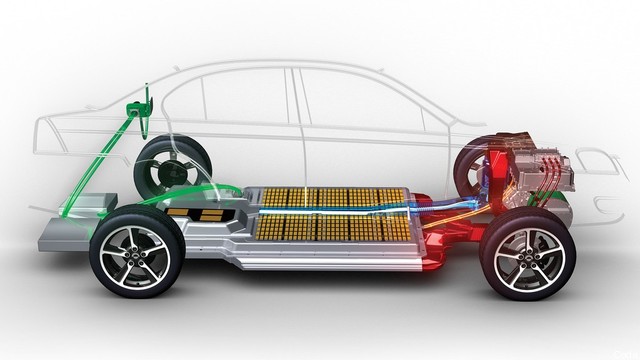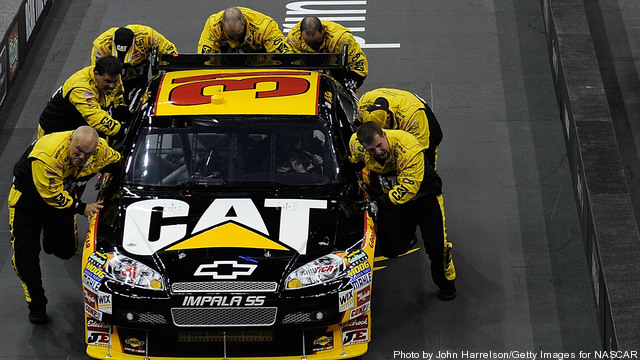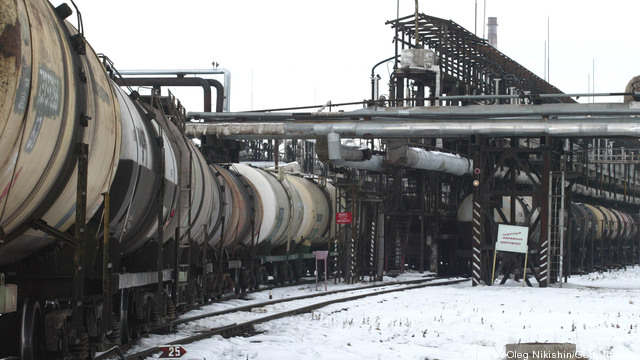The fatal Quebec oil train disaster looks likely to touch off yet another debate affecting the future of the Keystone XL pipeline – whether pipelines or rail are a safer way to transport oil. “People think rail is costless until something like this happens.” [Bloomberg] France’s Total and its Chief Executive Christophe de Margerie were… Keep reading →
Transportation
Sign up and get Breaking Energy news in your inbox.
We will never sell or share your information without your consent. See our privacy policy.The world reacted with a collective “Huh?” earlier this month when Nicaragua’s National Assembly voted overwhelmingly to hand a 50-year concession to a Hong Kong company to build a canal across the country. Among the many mysteries were exactly where and how such a thing would be built – and why, too, given that the… Keep reading →
DOE launched H2USA to develop hydrogen fuel infrastructure, advance fuel cell electric vehicles, and diversify the transportation energy portfolio. On May 13, 2013, the Department of Energy (DOE) launched H2USA, a public-private partnership to advance hydrogen infrastructure, increase affordability of fuel cell electric vehicles, and provide more energy options for the transportation sector. The partnership includes stakeholders from… Keep reading →
The International Energy Agency highlights the transformative nature of the US oil boom in its latest Medium-Term Oil Market Report, released today. “Rising supplies of US light, tight oil (LTO) have turned upside down, or at least called into question, the conventional wisdom about what oil is, how it is extracted, how much of it… Keep reading →

Can a 150-year-old company be part of the modern economy? Apparently so. Union Pacific (UNP), America’s largest railroad, touches all parts of the economy, even globally — 30% to 40% of its shipments originate or terminate outside the U.S. — and it’s doing better than many younger firms: Its stock recently hit all-time highs. CEO Jack Koraleski, 62, has been working on the railroad his entire career. He’s an evangelist for the industry, especially stressing its eco-friendliness: A train can haul a ton of freight 500 miles on a gallon of diesel fuel, of which he buys over a billion gallons a year. He talked recently with Fortune’s Geoff Colvin about why Union Pacific is really an infotech company, the wisdom of hiring veterans, and much else. Edited excerpts:

Battery maker A123 Systems, a one-time darling of the U.S. electric car industry and recipient of millions in government funding, filed for Chapter 11 bankruptcy Tuesday. A123 (AONE) missed an Oct. 15 interest payment totaling about $2.7 million on $144 million of debt. The battery manufacturer had $460 million in total assets and $376 million in debt as of Aug. 31, according to documents filed in U.S. Bankruptcy Court in Wilmington, Del. Tuesday.

It might seem like a strange idea to launch a car company these days, especially in the challenged electric vehicle sector. But viewed from the perspective of evolving energy technology and shifting generation and energy use priorities, electric cars are in many ways just one facet of energy storage at a scale accessible to most consumers.
Coda, a California company that views itself as an advanced technology firm leveraging the lithium phosphate battery, is also an electric car company. Keep reading →

American car companies are moving ahead with a plan to produce natural gas powered cars and trucks for public fleets in state-sponsored efforts to create a wider public market for the vehicles.
Representatives of the Big Three carmakers, and Honda, as well as auto dealers and companies that convert conventional engines to run on compressed natural gas, met with leaders of a consortium of states in Oklahoma City this month to discuss a request for proposal that has been issued by the states to the car makers. Keep reading →

Westport Innovations said Tuesday it reached an agreement with Caterpillar to use natural gas technology for mining trucks and locomotives. Terms of the deal were not disclosed. The Vancouver-based company makes direct injection, natural gas technology for heavy-duty vehicles. “The substantial price difference between natural gas and diesel fuel is resulting in a strong financial incentive to enable off-road applications to take advantage of low natural gas energy costs without sacrificing operational performance,” said David Demers, chief executive officer of Westport Innovations. Read more: http://www.foxbusiness.com/markets/2012/06/05/caterpillar-westport-team-up-on-natgas-vehicles/#ixzz1wvszEJsH

Natural gas could reach the status of a globally priced and traded commodity within five years if sufficient shipping capacity is developed.
The use of natural gas in transport has the potential to change the role of energy infrastructure, politics and investing, but without the right mix of government policies and business commitment fuel consumption patterns will lag broader shifts that include a shift in consumption power to emerging economies. Keep reading →




